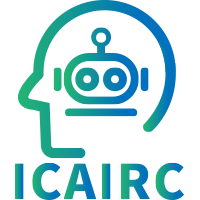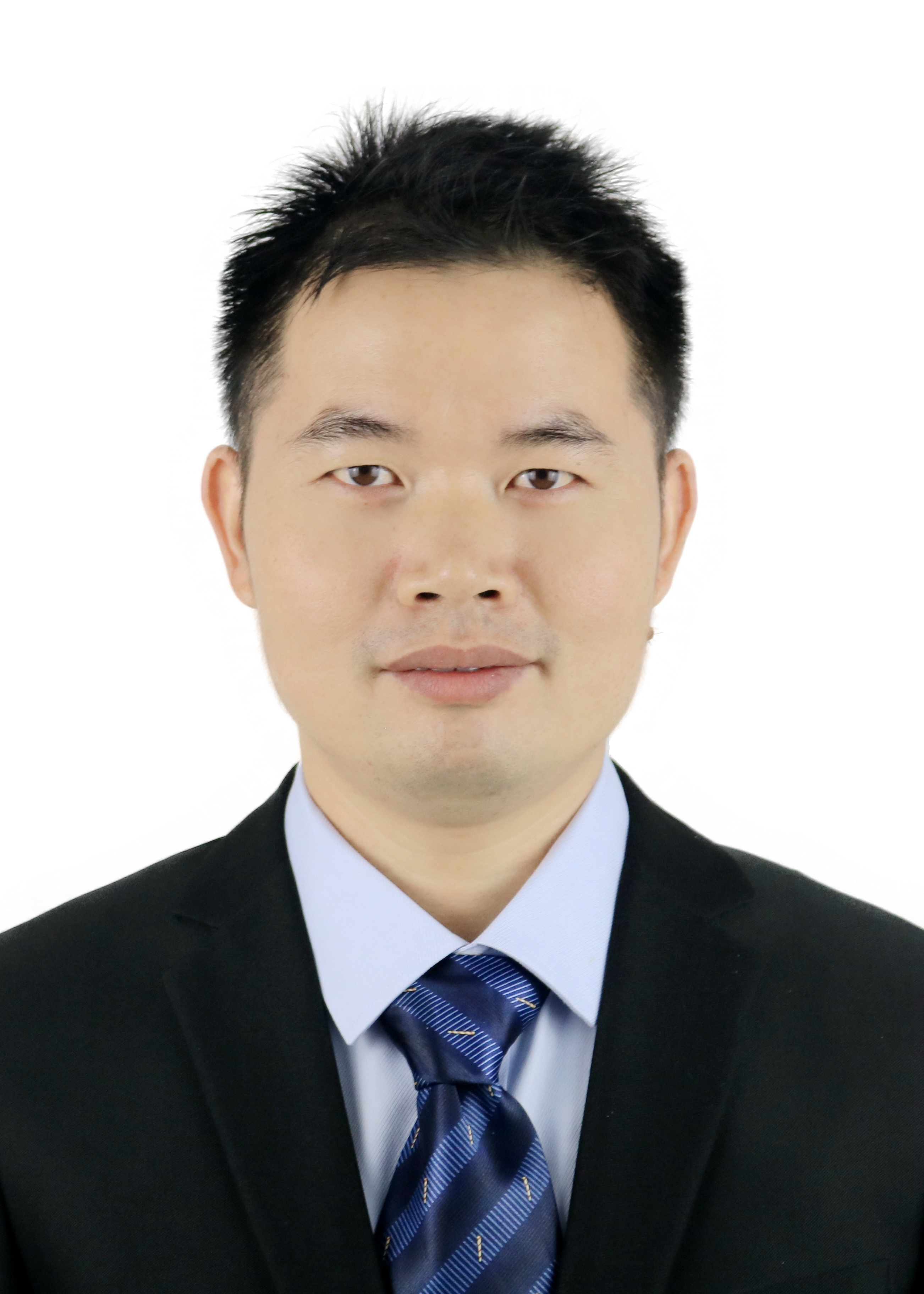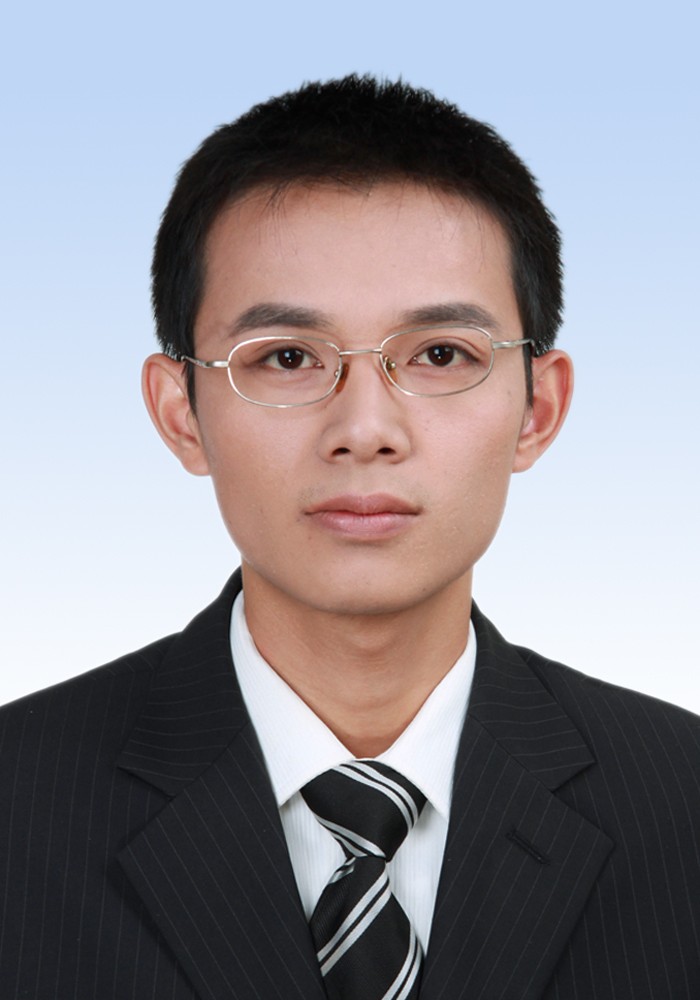
Speakers (2025)
| Professor Yun LiIEEE Fellow Shenzhen Institute for Advanced Study, UESTC Bio: Professor Yun Li FIEEE taught at University of Glasgow for 28 years since 1991, where he supervised 30 doctoral students on “AI for Science and Engineering”, was recognized as the second Top Author, and served as the founding Director of University of Glasgow Singapore. In 2021, he founded the Industrial Artificial Intelligence Centre and is currently its Chief Scientist as well as Chief Scientist of the AI and Robotics Institute, Shenzhen Institute for Advanced Study, University of Electronic Science and Technology of China, where he serves as Changjiang Chair Professor. Prof Li has published over 300 papers and books, and holds over 30 patents in China, Europe, United States and Japan. He has been funded over 20 million pounds to led or co-led over 30 research projects in the UK, EU, Singapore, and China, and currently leads 3 major research projects funded by the National Natural Science Foundation of China for the next-generation AI models and by the National Key R&D Program of China for the next-generation AI chips. Title: Grey-Box State-Space World Model Towards the Next Generation of Artificial Intelligence for Engineering Abstract: The explosive growth in data volume and computational power has enabled the successful application of artificial intelligence (AI) to engineering science ("AI for Engineering"), greatly enhancing industrial innovation in terms of exploration, imagination, and creativity. This talk introduces, in conjunction with a generic large language model (LLM) based on the Artificial Neural Network (ANN) and the Kolmogorov-Arnold Network (KAN), the next generation AI model based on a grey-box state-space model (SSM) that is explainable and is capable of understanding and interacting with the physical world. The talk will also illustrate the elevation of "Computer-Aided Design" (CAD) in the third paradigm of science to "Computer-Automated Design" (CAutoD) in the fourth paradigm, so as to break through the intelligence limits of human engineers, whereby enlightening original creativity, enhancing design performance, and shortening development gearing. Applications will cover engineering design, dynamic system modelling, and electronic design automation (EDA). |
 | Prof Weijia JiaMember of NAAI, IEEE Fellow Beijing Normal University (BNU-Zhuhai)/BNBU Bio: Professor Weijia Jia (Member of US National Academy of Artificial Intelligence, IEEE Fellow) is currently the Director of Institute of Artificial Intelligence and Future Networking, and Super Intelligent Computer Center, Beijing Normal University (BNU, Zhuhai); also a Chair Professor at BNBU(UIC), Zhuhai, Guangdong, China. His contributions have been recoganized for the research of edge AI, optimal network routing and deployment; vertex cover; anycast and multicast protocols; sensors networking; knowledge relation extractions; NLP and intelligent edge computing. He has over 800 publications in the prestige international journals/conferences and research books and book chapters. He has received the best product awards from the International Science & Tech. Expo (Shenzhen) in 2011/2012 and the 1st Prize of Scientific Research Awards from the Ministry of Education of China in 2017 (list 2), 1st Prize of Shanghai Science and Technology Award (2025, list 4) and top 2% World Scientists in Stanford-list (2020-2025) and many provincial science and tech awards. Title: From Binary to Edge AI-LLM Collaborative Computing Abstract: Chinese Yi Jing (The Book of Changes) has been rooted in 5000 years ago and been evaluated by Leibniz as the essentially Chinese version of binary system which become the basic computing language. Tracing back the computing history, we can see that AI technologies become today’s global competitive strategy for the world’s players, especially the emergence of Large Language Models (LLMs) and AI chips. LLMs are widely used across various domains, but deploying them in cloud data centers often leads to significant response delays and high costs, undermining Quality of Service (QoS) at the network edge. Although caching LLM request results at the edge using vector databases can greatly reduce response times and costs for similar requests, this approach has been overlooked in prior research. To address this, we propose a novel non-invasive RAG approach called Vector database-assisted cloud-Edge collaborative LLM QoS optimization system that caches LLM request results at the edge using vector databases, thereby reducing response times for subsequent similar requests. We formulate the QoS optimization problem for Edge AI as a Markov Decision Process and design an algorithm based on Multi-Agent Reinforcement Learning. Our algorithm employs a diffusion-based policy network to extract the LLM request features, determining whether to request the LLM in the cloud or retrieve results from the edge’s vector database. Our experimental results demonstrate that our system significantly enhances user satisfaction by simultaneously reducing delays and resource consumption for edge users of LLMs. We further explore the non-invasive RAG approach to the applications of real estate by introducing large-scale open-domain Chinese Tabular Question Answering dataset for Real Estate market. We finally briefly introduce our new In-Context learning algorithm that balances the diversity and similarity of semantics for resource constraints of edges. |
 | Prof Nianyin ZengFujian High-Level Talent Xiamen Key Talent Xiamen University, China Bio: Nianyin Zeng was born in Fujian Province, China, in 1986. He received the B.Eng. degree in electrical engineering and automation in 2008 and the Ph. D. degree in electrical engineering in 2013, both from Fuzhou University. From October 2012 to March 2013, he was a RA in the Department of Electrical and Electronic Engineering, the University of Hong Kong. From September 2017 to August 2018, he as an ISEF Fellow founded by the Korea Foundation for Advance Studies and also a Visiting Professor at the Korea Advance Institute of Science and Technology. Title: Research on Intelligent Visual Defect Detection Methods for Aero-engine Core Components under Complex Conditions Abstract: Aero-engines, as highly complex precision systems, can suffer catastrophic consequences from minute defects in critical components like turbine and compressor blades. Traditional inspection methods often rely on manual expertise, suffering from low efficiency and high rates of missed/false detection. In contrast, AI-driven inspection offers non-contact operation, high precision, and automation potential, presenting a key solution to these bottlenecks. This report analyzes core scientific challenges and solutions for intelligent defect detection in aero-engines under complex and dynamic scenarios: (1) Addressing Data Limitations: Analyzing methods to process and enhance low-quality defect images captured in extreme environments, mitigating noise and overcoming insufficient labeled samples; (2) Overcoming Algorithmic Bottlenecks: Solving how to extract discriminative defect-related features from high-dimensional visual data to distinguish subtle, complex, and obscured defect features from complex background; (3) Resolving Deployment Constraints: Exploring lightweight, high-precision, low-latency defect detection under limited computational resources to achieve efficient performance trade-offs for in-line aero-engine quality inspection. Furthermore, the report introduces emerging technologies, discussing their industry-academia-research collaboration for intelligent aviation equipment maintenance. |
 | Professor Liansheng WangXiamen University, China Bio: Wang Liansheng is currently a professor at the School of Information at Xiamen University, a dual-appointed professor at the Department of Gastroenterology at the School of Medicine, a doctoral supervisor, the deputy director of the Digital Fujian Health and Medical Big Data Research Institute, and the deputy leader of the AI group of the Radiology Branch of the Fujian Medical Association, Vice Chairman of MICS. He has been engaged in medical image processing research for a long time. He has hosted and participated in a number of scientific research projects, including the National Natural Science Foundation of China Instrument Project, the Ministry of Science and Technology’s Scientific and Technological Innovation 2030, the National Key R&D Project, the National Natural Science Foundation of China and Youth Projects, etc. His publications include Nature Machine Intelligence , Nature Communications, Cell Patterns, TMI, MedIA, CVPR/AAAI and other related research papers, and won the Tencent Rhinoceros Research Award, CSPE Young Investigator, the second prize of the Fujian Province Science and Technology Progress Award, and the 2023 Xiamen University Field Award The first prize of the Zhaowu Interdisciplinary Award, and led the team to win the championship in international medical imaging competitions 11 times. Title: AI for pathology Abstract: Artificial intelligence (AI) has emerged as a powerful tool in pathology, revolutionizing disease diagnosis and patient care. This talk explores the transformative potential of AI in pathology and its applications across various aspects of the field. From image analysis to predictive modeling, AI algorithms are augmenting pathologists' abilities, improving diagnostic accuracy, and enhancing patient outcomes. This talk highlights key areas where AI is making significant contributions in pathology, including image analysis for automated detection and classification of tissue abnormalities, predictive modeling for risk stratification and treatment planning, digital pathology for remote access and collaboration, and quality assurance processes. The talk emphasizes the potential of AI to revolutionize pathology practice, reduce inter-observer variability, and promote personalized medicine. By harnessing the power of AI, pathology stands poised to enter a new era of precision diagnostics and improved patient care. |
| Assoc. Prof Tengpeng ChenXiamen University, China Bio: Tengpeng Chen received Ph.D. from the School of Electrical and Electronic Engineering, Nanyang Technological University, Singapore, in 2017. He is currently an associate professor in the Department of Instrumental and Electrical Engineering, Xiamen University, China. His research interests lie in the distributed optimization algorithms with application in large-scale systems, power system state estimation, energy management for microgrid and power system dynamics. Title: Optimal PMU Placement and State Estimation Methods in Power Systems Abstract: Phasor Measurement Units (PMU) are devices dedicated to measuring the phase angle and magnitude in the power system, synchronized via the Global Positioning System (GPS) to provide real-time monitoring and accurate data. However, considering the investment and communication burden, it is not feasible to install PMU at all nodes within the power system. Moreover, state estimation is a key technology for ensuring the safety, stability, and efficient operation of the power system. Therefore, we propose an optimized PMU placement (OPP) approach for power systems to enhance measurement accuracy and reliability, and then propose new state estimation methods so as to enhance the robustness and real-time performance of power system dynamic state estimation. |

